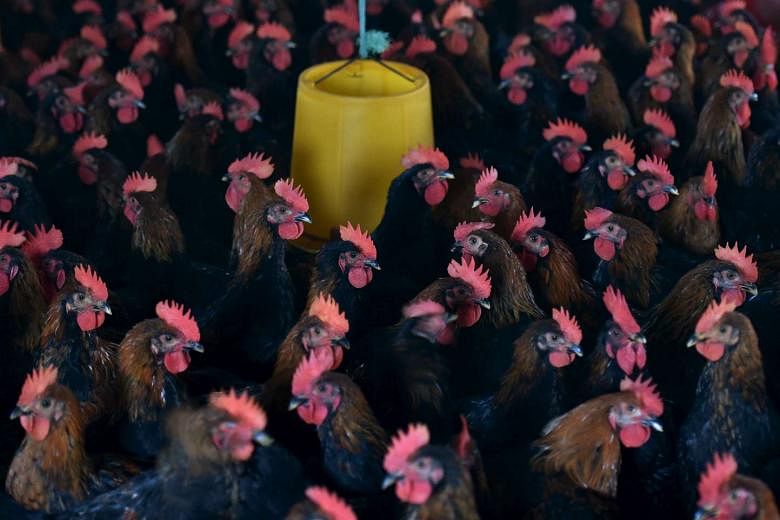BEIJING (Reuters) - A Chinese city said on Sunday (Dec 25) it will suspend trade of live poultry in the interests of public health after neighbouring provinces reported cases of human bird flu infections.
Suzhou, the second-biggest city in the eastern province of Jiangsu, will halt trading of live poultry as of midnight, the official People's Daily reported on its website.
Two people have died of the H7N9 strain of bird flu in China this winter, the first fatalities among at least seven infections.
In the past week, Hong Kong and Macau have also reported their first human bird flu infections for this season.
H7N9 had not been detected in either humans or animals in China until March 2013.
The city of Shanghai, about 100 km southeast of Suzhou, reported last week that a man had been diagnosed with the H7N9 strain after travelling from Jiangsu.
The two deaths were in Anhui province, west of both Shanghai and Suzhou. Anhui has reported five human infections since Dec. 8.
Authorities in Anhui, which has a population of almost 60 million, have shut some livestock markets and stepped up sterilisation to prevent the virus spreading. "A few" chickens had been culled.
In Xiamen, a city in Fujian province also in the east, authorities halted poultry sales on Thursday in one district, after a 44-year-old man was diagnosed with H7N9, state news agency Xinhua reported.
The H7N9 strain does not seem to transmit easily from person to person, and sustained human-to-human infection has not been reported, according to the World Health Organisation.
The danger with any such virus is that it mutates and acquires genetic changes that might increase its pandemic potential.
In China, the WHO confirmed two cases of an emerging strain believed to be a cross-species infection in the past two months.
A woman in Hunan province and another woman in Guangxi were admitted to hospital with the H5N6 strain, first reported in China in mid-2014. In Guangdong, a traveller was caught carrying 1.3 kg of chicken and duck eggs that later tested positive for bird flu, the state-run China Economic News reported on its website on Sunday.
The eggs found in the luggage of the Vietnamese traveller at Guangzhou airport on Dec. 14 tested positive for the H5 strain, according to the report, which cited the provincial quarantine bureau.
The most well-known strain of avian influenza is the highly pathogenic H5N1 subtype, which has killed hundreds of people globally since its first human infection about two decades ago in Hong Kong.
The last major bird flu outbreak in mainland China - from late 2013 to early 2014 - killed 36 people and led to more than US$6 billion in losses for the agricultural sector.

